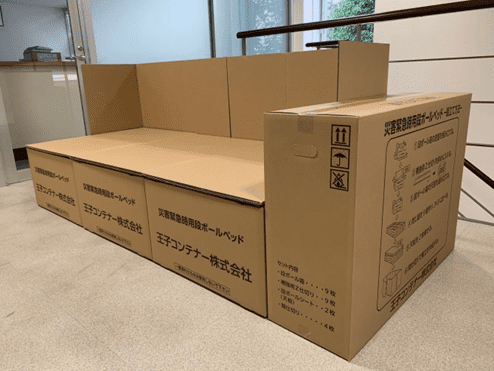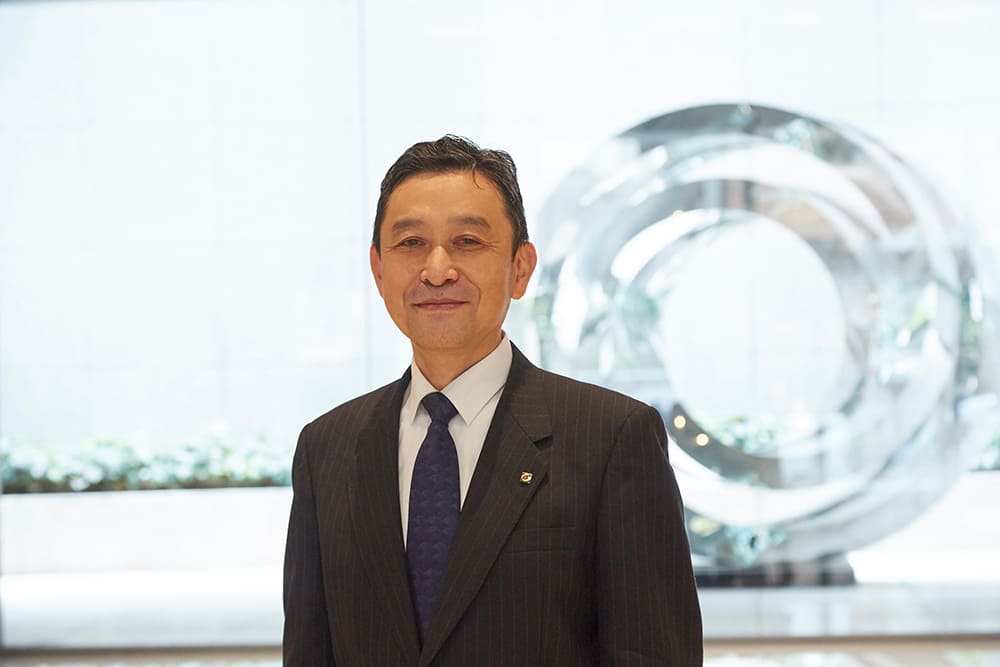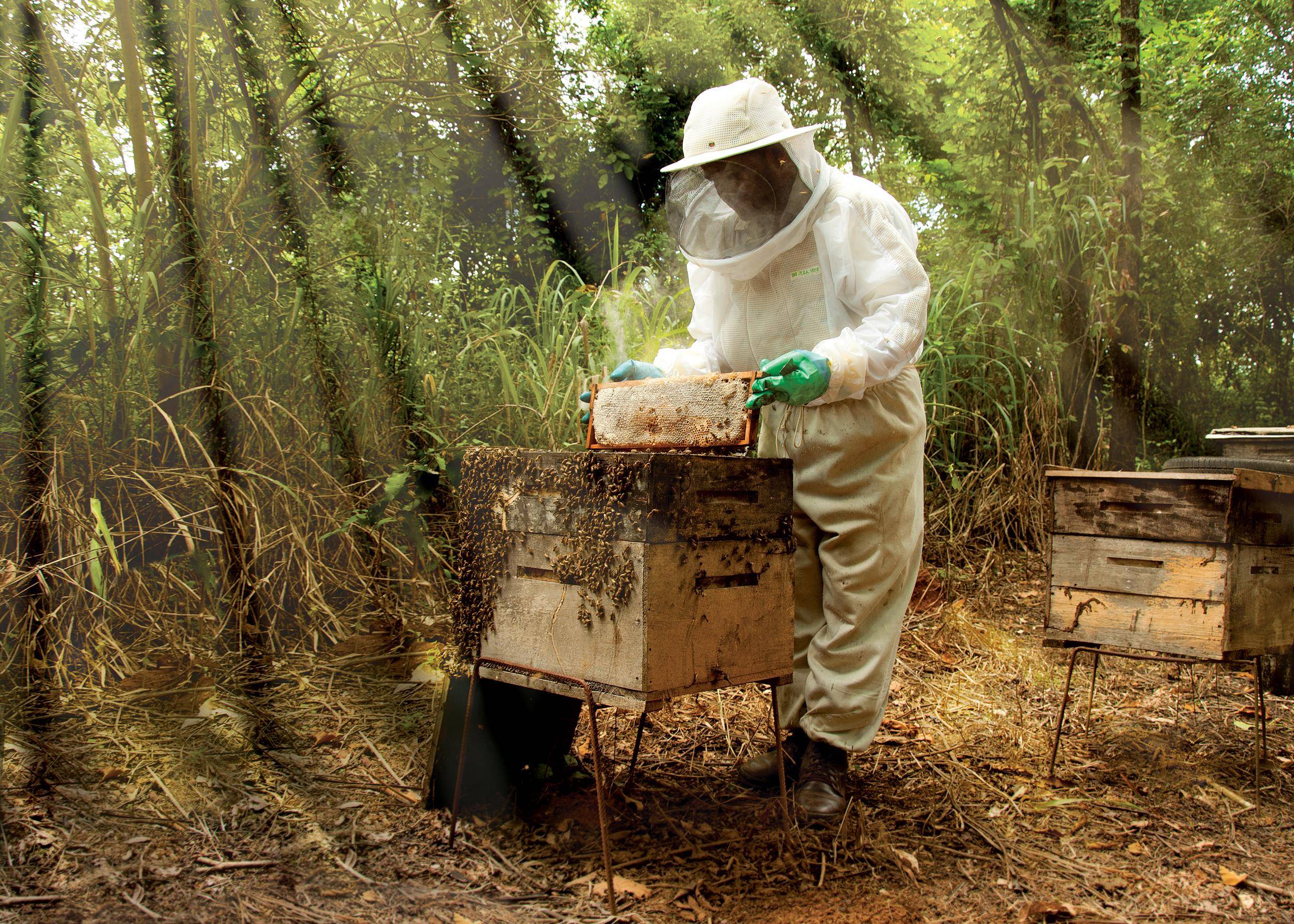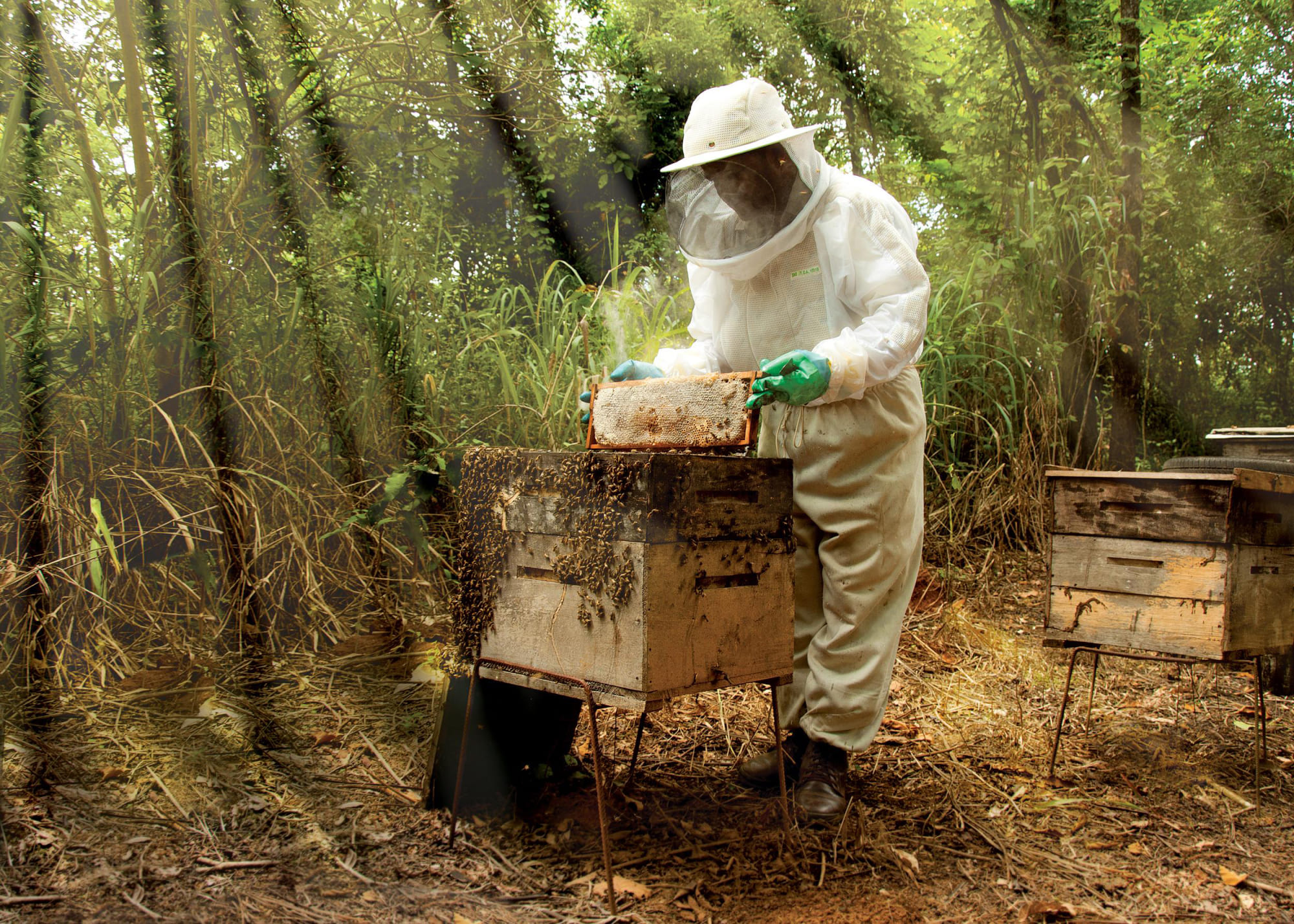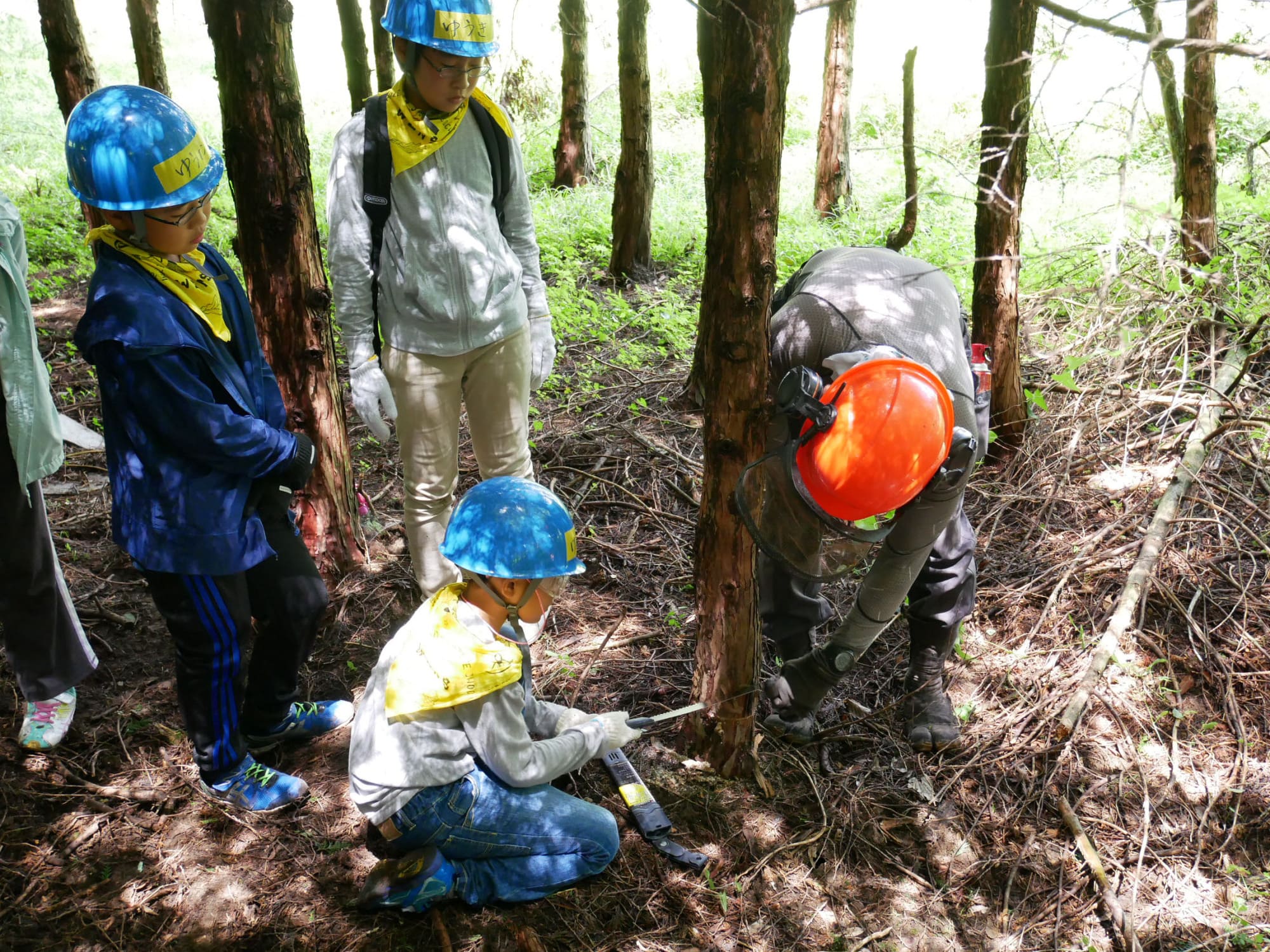November 25, 2022
Oji’s Nepi Eco paper products advance goal to cut fossil fuels
SPONSORED CONTENT

The first item launched in the Nepi Eco series, a lineup of environmentally conscious products introduced by Oji Nepia Co. Ltd. in 2021, was toilet paper. Oji Nepia is a subsidiary of Oji Holdings, one of the world’s major pulp and paper producers, headquartered in Tokyo’s Chuo Ward. This year, kitchen paper towels, tissues and masks were added to the series. In a recent interview with The Japan Times, Tomoko Takase from the Product Planning Division of Oji Nepia talked about the new ideas and efforts that have been put into these products and underlie Oji’s commitment toward a better global environment.
Oji owns and manages 573,000 hectares of forests globally, which is about 2.5 times as large as the prefecture of Tokyo. The company logs and plants trees, maintaining forests in a healthy state — proper management of forests keeps them healthy and maximizes their benefits. Young, growing trees absorb more carbon dioxide through photosynthesis than old, mature trees. In forests that are not properly managed, the lack of sunlight makes the forest darker, making it more difficult for young trees and underbrush to grow.
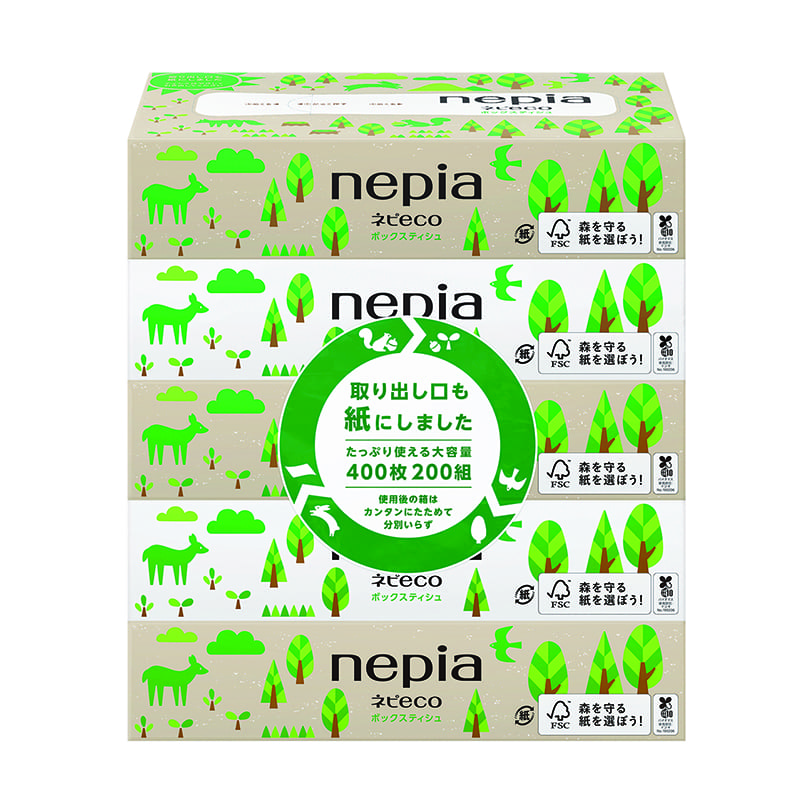
“Good soil in healthy forests can prevent disasters such as floods and landslides because of its water-retention capability. The groundwater that runs into rivers is clean and contains nutrients. Forests contribute not only to the preservation of biodiversity but also to the physical and mental health of people,” Takase said, stressing the importance of helping to maintain such diverse functions of forests.
Trees that are cut down are never wasted. Oji turns them into products or fuel to support production. Saplings are planted and the cycle of growth goes on. Some of the paper products are collected for recycling after use. “While fossil resources such as oil are depletable, wood, which can repeat this positive cycle, is a sustainable resource,” Takase said.
The Nepi Eco series is the fruit of Oji Nepia’s pursuit for a higher level of sustainability in its products. The rolls of toilet paper are twice as long as the standard 25 meters, which is better in many respects. “Customers are happy because it saves them space and the trouble of having to change toilet paper rolls frequently. Stores welcome it too because it requires less space, less restocking work and lower shipping costs. It can achieve a reduction in delivery trucks’ exhaust emissions at the same time,” Takase said. The toilet paper, tissues and kitchen paper towels are made of paper certified by the Forest Stewardship Council. Eighty percent of the materials used for Nepi Eco Biomass Masks are made from plants such as sugar cane and corn. “Conventional nonwoven masks are made of petroleum-based materials,” Takase explained.
The company’s efforts extend to packaging. Toilet paper rolls and boxes of tissues are generally sold wrapped in petroleum-based films. Oji Nepia tried to challenge this convention by using packaging made of paper and biomass film. Among the many kinds of paper it makes, it selected a wrapping paper that is strong, holds up against water and can be run through a machine to package its toilet paper rolls and kitchen paper towels. The designs on the packages are printed in biomass ink. Boxes of tissues are wrapped in biomass film. Biomass materials are also used for the inner packaging for masks.

The strips of plastic film normally attached to the opening of boxes of tissues have been replaced by paper. “We have been aware of customers’ feedback that it is troublesome to tear the film off the empty boxes because they need to separate trash,” Takase said. The box even has a guide, a grooved line, that allows a user to push and fold at ease, making it easier especially for the elderly with weaker grips to discard the box.
Since the masks are mostly sold online, they come in a thin paper box that fits through the slot of a normal mailbox, eliminating the need for extra packing just for shipping. The designs on the packages of kitchen paper towels, tissues and masks are meant to deliver the message that protecting forests leads to protecting our own future.
Takase said Oji aims to tell consumers about its initiatives on “forest recycling” — the sustainable and circular management of forests — and its contribution to issues related to climate change and preservation of biodiversity through the Nepi Eco products. “We have a major goal of achieving net-zero carbon in 2050,” she said. She expressed Oji’s determination to address climate change by cutting down on the use of fossil resources and curbing emissions. “We will continue to promote the use of environmentally friendly materials such as paper for our products and packaging,” Takase said.
Oji Holdings is a member of the Sustainable Japan Network, a group of companies that cooperate with this newspaper in spreading information about sustainability in Japan. You can also be part of the network; for more details, please visit https://sustainable.japantimes.com/sjnetwork-en


